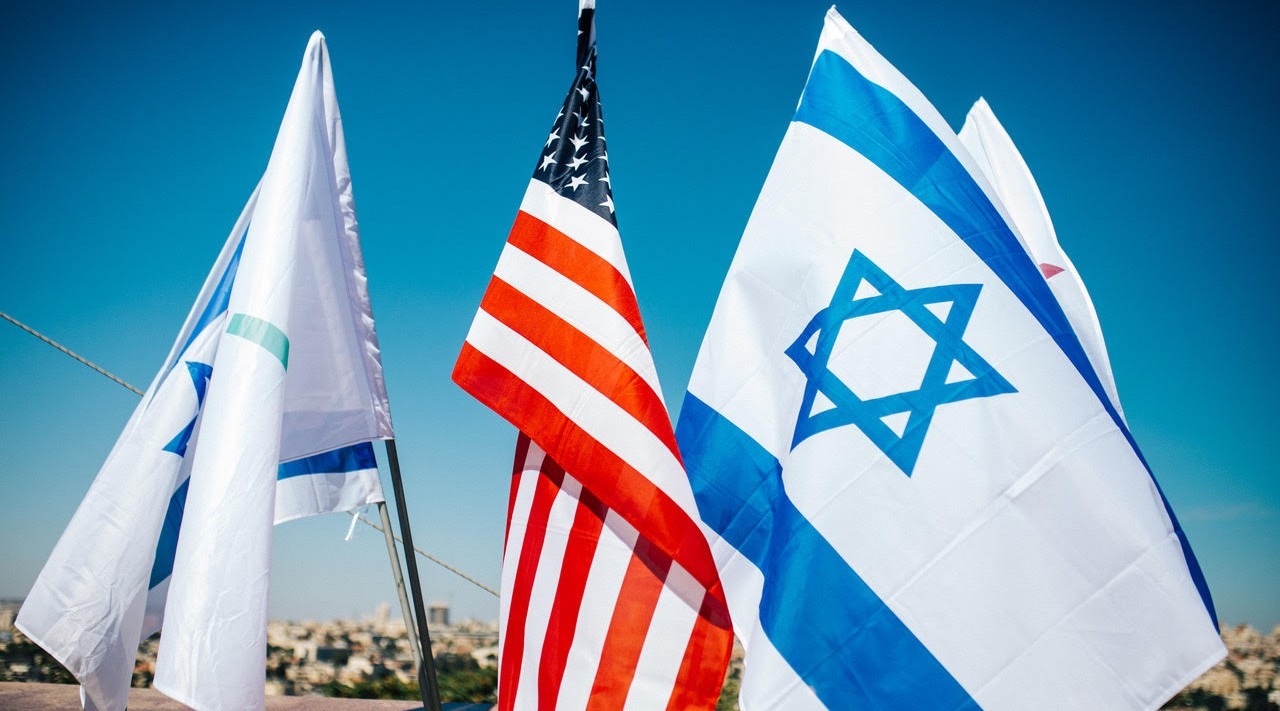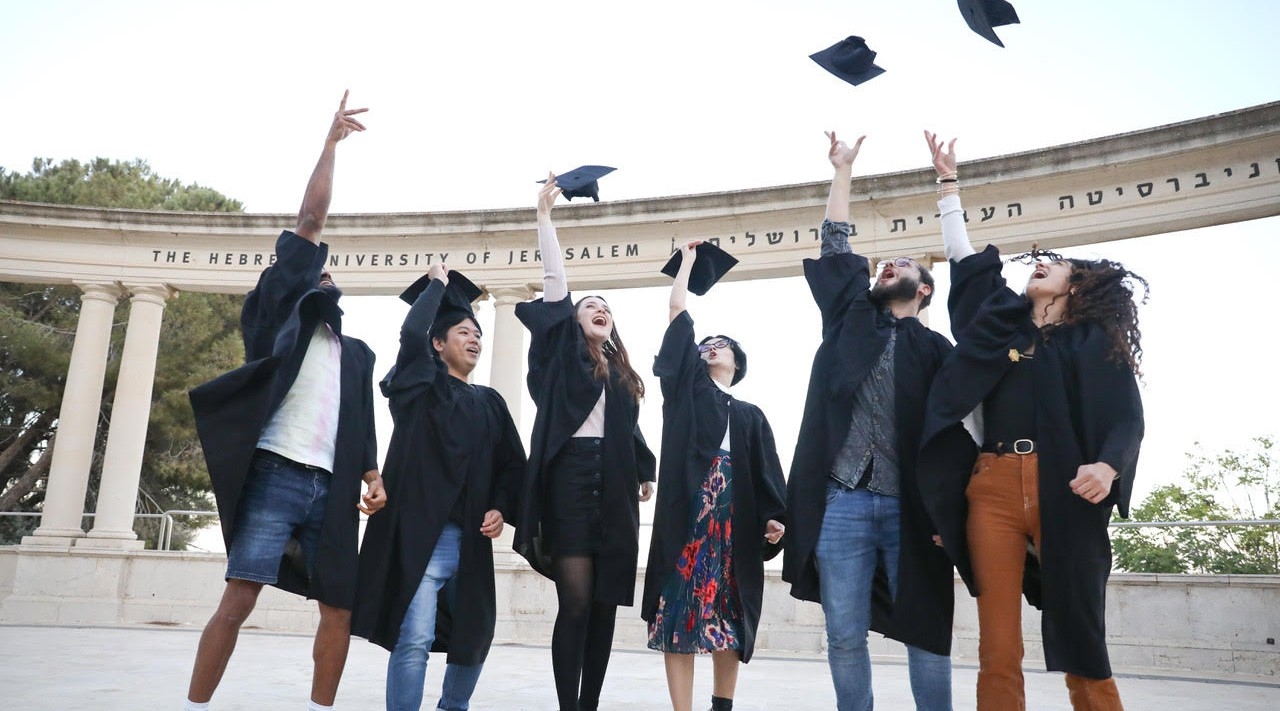In 1974, Pamela Nadler Emmerich — then a teenager from Montreal — arrived in Jerusalem for her freshman year at Hebrew University.
Not knowing what to expect, she signed up for a course on Jewish intellectualism, “Philosophical Implications of Rabbinic Thought,” taught by Montreal native Rabbi David Hartman.
“After class, I went up and told the professor that I had grown up in an Orthodox Jewish community but wasn’t sure if I believed in God,” she recalled. “I didn’t even know what the word belief really meant. And he smiled and said, ‘That’s wonderful, it means you’re thinking!’”
That encounter made a lasting impression on Emmerich, who is now president of the American Friends of the Hebrew University (AFHU).
This month the American organization, which was created to support Hebrew University, is marking its 100th anniversary in tandem with that of the university in Jerusalem. With global antisemitism on the rise and many US campuses a hotbed of anti-Israel ferment, supporting the Hebrew University is more important than ever, according to Emmerich.
“One hundred years ago, the university was founded to be a safe haven for Jewish students. And it still serves that role today,” she said.
Hebrew University was co-founded by Albert Einstein and Chaim Weizmann in 1918 and formally inaugurated on April 1, 1925. Meanwhile, AFHU was founded by American philanthropist Felix M. Warburg, who established a $500,000 endowment for the organization.
Today, fundraising by AFHU, which has an $800 million endowment and raises $65-$75 million annually for the university, accounts for over half of Hebrew University’s overall fundraising revenue.
The historic connections between Jerusalem and New York run deep. Hebrew University’s first chancellor and president was Judah L. Magnes, a prominent New York rabbi. The American Jewish Physicians Committee, founded in 1921, helped finance the Institutes of Microbiology and Chemistry in Jerusalem — which later became part of Hebrew University Hadassah Medical School.
Today, Hebrew University boasts 1,000 faculty members and 23,000 students spread across three campuses in Jerusalem — Givat Ram, Mount Scopus and Ein Kerem — and one each in Rehovot, Rishon LeZion and Eilat.
In 2024, AFHU, which has 45 staffers and regional offices in Florida, Chicago, Los Angeles, New York, Philadelphia, San Francisco and Washington, D.C, raised $74.2 million for the university — the biggest annual haul in its history. The organization’s long-term goal is to raise $100 million a year, said Clive Kabatznik, chairman of AFHU’s board.
“The pre-state generation of donors and supporters is essentially dying out. Anybody who was alive when the state was born is at least 77 years old now,” Kabatznik said. “That generation of donors — on whose shoulders we stand — had a different perspective towards Israel and Hebrew University than the high-tech, hedge-fund, private equity players of today.”

The connections between the United States and Jerusalem run deep, with American Friends of the Hebrew University accounting for over half of the university’s total fundraising revenue. (Igor Farberov)
The South African-born Kabatznik enrolled at Hebrew University in 1974, where he earned bachelor’s and master’s degrees, met his wife and got married.
“It was the most incredible liberal arts education one could get,” said Kabatznik, now a venture capitalist who divides his time between Israel and South Florida. “The level of teaching was just through the roof, and it really was a formative experience for me. It molded me and taught me how to think on my feet.”
Since 2003, Kabatznik has been active in AFHU, developing its US-based alumni initiative and spearheading programs showcasing Israeli-led technologies in fields such as cybersecurity, clean energy, fintech and nanoscience.
One of Hebrew University’s most urgent challenges these days is the international boycott of Israeli academics and institutions.
“The major impact Oct. 7 has had is this overt and covert closing of international academic ties,” Kabatznik said. “We’re successful in fighting this on a formal basis, but informally, when professors stop replying to emails, it’s much more insidious.”
In an effort to attract more international students, Hebrew University’s Rothberg International School recently began offering a three-year, fully accredited undergraduate program entirely in English.
Compared to American universities, Hebrew University represents a bargain — and not just on tuition. Philanthropists will find that endowing a chair at Hebrew University costs less than half what it would at an Ivy League school, according to Stanley Bogen, a longtime AFHU donor who is now its honorary chairman and president.
“Whenever I talk to people, I tell them that the money they give goes so much farther in Israel,” Bogen said.
With many Jewish alumni disaffected from their US alma maters’ recent record on antisemitism, Emmerich would like AFHU to get them to become supporters of Hebrew University.
Joshua Rednik, the CEO of AFHU since 2021, said his goal this year is to raise at least 100 new commitments of at least $100,000.
“Over the last 100 years, few institutions have had as significant an impact on the land, people and politics of Israel as Hebrew University,” Rednik said. “We frequently say Hebrew University was the original Zionist project before Israel was even Israel. It has touched every corner of Israeli society.”
JTA has documented Jewish history in real-time for over a century. Keep our journalism strong by joining us in supporting independent, award-winning reporting.
This article was sponsored by and produced in collaboration with American Friends of the Hebrew University, a national nonprofit that connects the passions of Americans to talent at the Hebrew University of Jerusalem. This story was produced by JTA’s native content team.
More from American Friends of the Hebrew University




